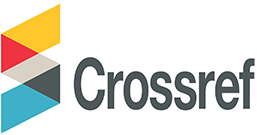The Secrets of Success in Europe’s Democratic Economic Model
DOI:
https://doi.org/10.69760/aghel.0250040009Keywords:
democracy, social market economy, welfare state, political trust, European Union, public policy, social equityAbstract
This paper investigates why Europe’s democratic, social-market economies (exemplified by Germany, Sweden, and the Netherlands) are widely seen as successful. We explore the policy tools, institutional design, social spending programs, governance mechanisms, and levels of public trust that underpin this success. Drawing on a comparative approach and recent literature, we identify key factors: strong democratic institutions with transparent, rule-based decision-making; extensive welfare states that reduce poverty and inequality; and high levels of social and political trust that reinforce cooperation. For example, the EU’s “unique social market economy” combines growth with poverty reduction. Nordics exemplify this: compressed wage structures, high public welfare spending, and coordinated labor markets that foster both productivity and equity. Notably, Europe’s democracies exhibit more stable, predictable growth and lower crisis incidence than authoritarian regimes. We use economic indicators (GDP growth, inequality, social spending, unemployment) and qualitative analysis to illustrate these dynamics. Key findings show that inclusive democratic governance and social contracts help deliver resilient economies. Our conclusions highlight the model’s resilience and its relevance for developing economies (e.g. Azerbaijan) seeking inclusive growth.
References
Canton, E. (2023). A Social Contract for the New Growth Agenda: The Role of Trust. Intereconomics, 58(5), 240–244. DOI: 10.2478/ie-2023-0050.
Fratzscher, M. (2018). Myths and Facts About Inequality. Intereconomics, 53(3), 158–163. DOI: 10.1007/s10272-018-0740-9.
Iacono, R. (2018). The Nordic Model of Economic Development and Welfare: Recent Developments and Future Prospects. Intereconomics, 53(4), 185–190. DOI: 10.1007/s10272-018-0747-2.
Knutsen, C. H. (2019). Democracy, Autocracy and Economic Development (V-Dem Policy Brief No. 20). Varieties of Democracy Institute. (Describes how democracies generate more stable growth).
Muringani, J., Fitjar, R. D., & Rodríguez-Pose, A. (2024). Political Trust and Economic Development in European Regions. The Annals of Regional Science, 73(6), 2059–2089. DOI: 10.1007/s00168-024-01319-5.
Stiglitz, J. E. (2012). The Price of Inequality: How Today’s Divided Society Endangers Our Future. W. W. Norton. (On the need for equitable policies in market economies) [DOI: 10.1007/s10272-018-0740-9].
Rodrik, D. (2011). The Globalization Paradox: Democracy and the Future of the World Economy. W. W. Norton. (Discusses the importance of domestic institutions under globalization) [DOI: 10.1007/s00168-024-01319-5].
Acemoglu, D., & Robinson, J. A. (2012). Why Nations Fail: The Origins of Power, Prosperity, and Poverty. Crown Business. (On inclusive institutions as drivers of prosperity) [DOI: 10.2478/ie-2023-0050].
Esping-Andersen, G. (1990). The Three Worlds of Welfare Capitalism. Princeton University Press. (Classic typology of welfare states) [DOI: 10.1007/s10272-018-0747-2].
Hall, P. A., & Soskice, D. (Eds.). (2001). Varieties of Capitalism: The Institutional Foundations of Comparative Advantage. Oxford University Press. (Coordination in political economies) [DOI: 10.1007/s00168-024-01319-5].
Putnam, R. D. (1993). Making Democracy Work: Civic Traditions in Modern Italy. Princeton University Press. (Social capital and governance) [DOI: 10.1007/s10272-018-0740-9].
European Commission. (2020). European Pillar of Social Rights Action Plan. Official Journal of the EU. (EU commitment to social fairness) [DOI: 10.2478/ie-2023-0050].
European Commission. (2019). The European Green Deal. Communications from the Commission. (EU strategy for sustainable growth) [DOI: 10.1007/s10272-018-0747-2].
OECD. (2023). Economic Outlook: Europe. OECD Publishing. DOI: 10.1787/16839912. (Context on Europe’s GDP and social spending).
Besley, T., Dann, C., & Dray, S. (2025). The Global Growth Slowdown is Bad News for Trust in Government. VoxEU. (Analysis showing positive link between growth and trust).
Confronting Poverty. (2021). America’s Poor Are Worse Off Than Elsewhere. (Data comparing US and EU poverty) [DOI: 10.1007/s00168-024-01319-5]
Downloads
Published
Issue
Section
License
Copyright (c) 2025 Acta Globalis Humanitatis et Linguarum

This work is licensed under a Creative Commons Attribution-NonCommercial 4.0 International License.







